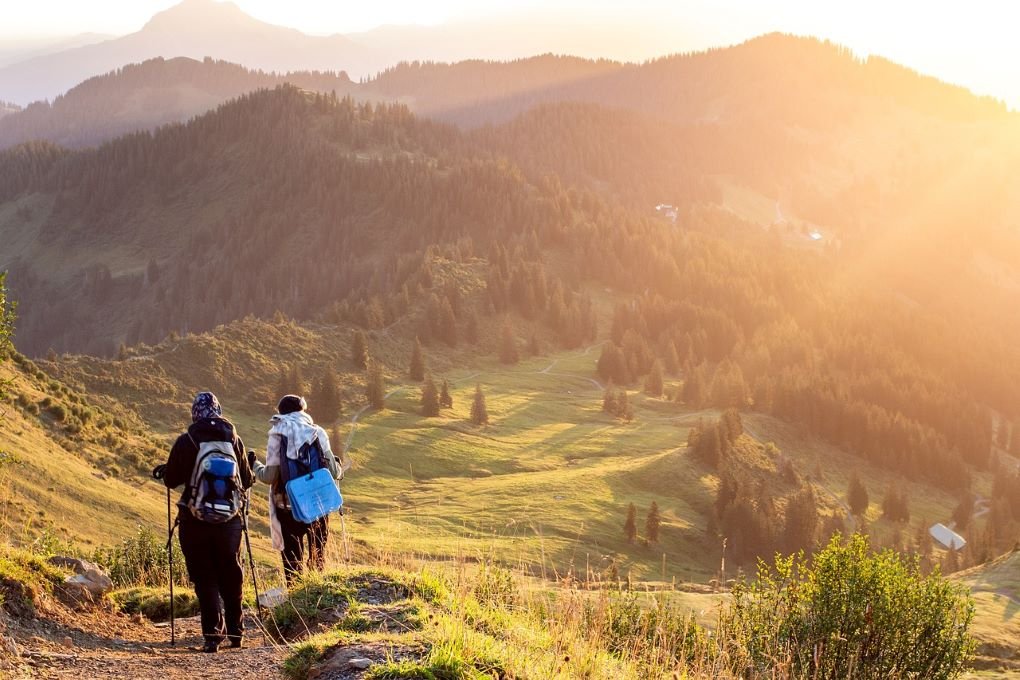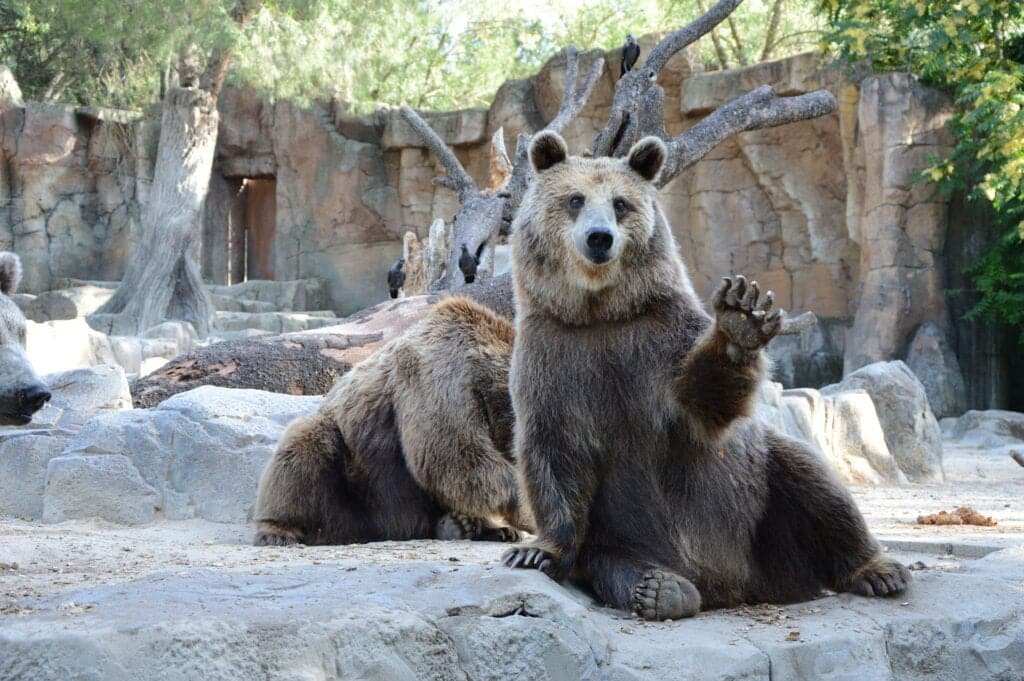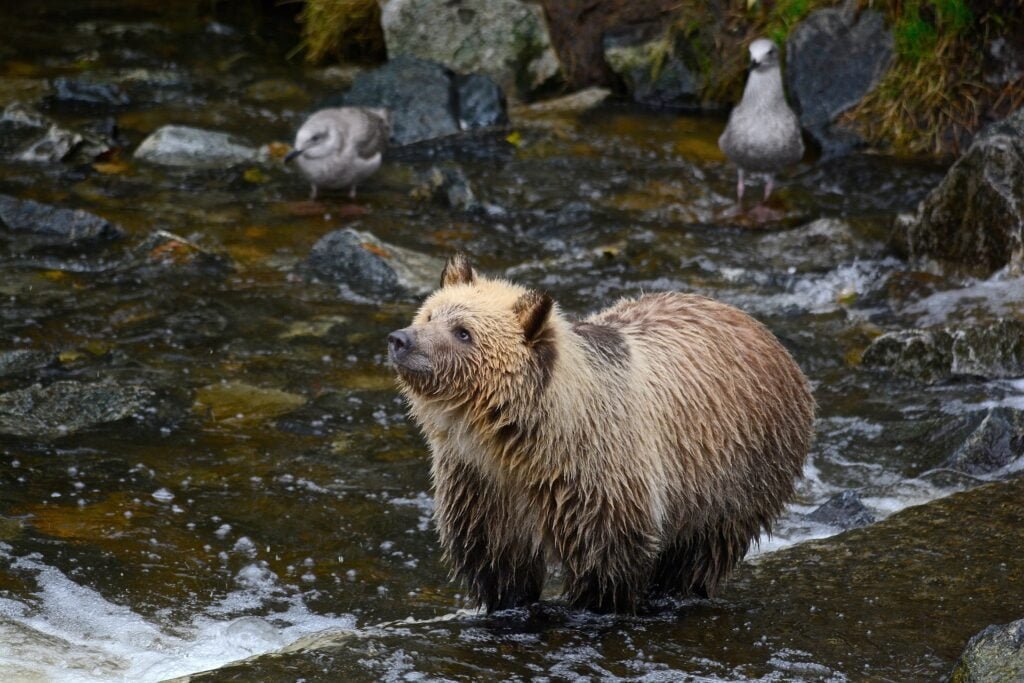Hiking in bear territory can be an exhilarating experience, but it’s crucial to be well-prepared to ensure your safety. Bears are magnificent creatures, but encounters can be dangerous if you’re not equipped with the right gear. This article covers the essential items you should bring along when hiking in bear territory.
Bear Spray
Bear spray is a must-have for anyone hiking in areas where bears are common. It’s a powerful deterrent that can stop a charging bear and give you time to retreat to safety. When choosing bear spray, ensure it has a minimum range of 25 feet and a spray time of at least 6 seconds. Practice using it before your hike so you’re familiar with its operation.
Some people think it is also okay to use pepper spray, but this is not a good idea. First of all pepper spray is less strong than bear spray and most importantly the average pepper spray can only spray 3-6 feet. That is a little bit too close for a bear encounter. Also, pepper spray has a much more focused spray. Bear spray requires a less perfect aim. In short, don’t go for pepper spray invest in bear spray.
Bear-Resistant Containers
Food storage is critical when hiking in bear territory. Bears are mostly attracted to the smell of food. Use bear-resistant containers to store all food, trash, and scented items. These containers are designed to withstand a bear’s attempts to break into them, keeping both you and the bears safe. Ensure that all food and scented items are stored in these containers and kept away from your sleeping area.
Noise Makers
Making noise while hiking can help alert bears to your presence and prevent surprise encounters. Bells, whistles, or simply talking loudly can be effective. Many hikers attach bear bells to their backpacks, which jingle as they walk, providing a continuous sound to warn bears of their approach.

Navigation Tools
A good map, compass, and GPS device are essential for navigating bear country. Staying on established trails reduces the risk of surprising a bear in dense vegetation or near food sources. Knowing your route and being able to navigate effectively helps you avoid areas where bears are known to frequent.
First Aid Kit
A comprehensive first aid kit is vital for any hiking trip, but especially so in bear territory. Include items such as bandages, antiseptic wipes, pain relievers, and any personal medications. Knowing basic first aid procedures can be life-saving in the event of an encounter or other injury.

The Evantek First Aid Kit is one of our favorites. It contains everything you need. What sets it apart is its compact size and its waterproof packaging which makes it ideal for hiking.
Proper Clothing
Wear clothing that helps you blend into the natural environment and avoid brightly colored attire that might attract attention. Long sleeves and pants can protect you from scratches and insect bites, while sturdy hiking boots provide support and protection on rugged terrain. Dressing in layers allows you to adjust to changing weather conditions.
Emergency Shelter
An emergency shelter, such as a lightweight tent or bivy sack, is essential in case you need to stay overnight unexpectedly. This can provide protection from the elements and offer a safe place to rest if you cannot continue your hike for any reason.
Headlamp or Flashlight
A reliable headlamp or flashlight is crucial for visibility in low-light conditions. It helps you navigate safely and ensures you can see and be seen by any wildlife in your vicinity. Carry extra batteries to ensure your light source lasts for the duration of your hike. A headlight has the preference because it keeps your hands free.
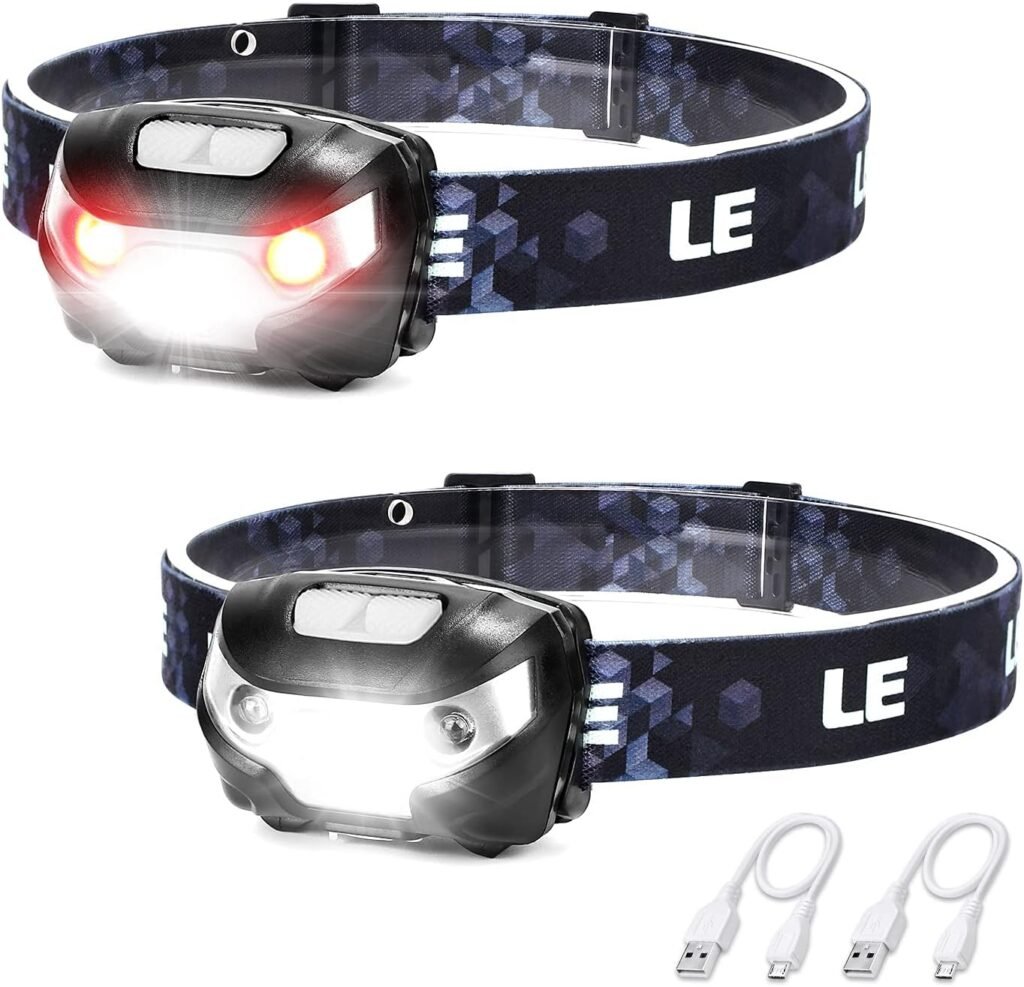
You can find these headlamps for as cheap as 5 USD. Personally I prefer to invest I little bit more expensive one. This usually comes with the benefit of being rechargeable instead of working on replaceable batteries. It also usually comes with different lighting strengths so you can easily adapt it to the strength you need at that moment.
Hydration System
Staying hydrated is crucial, so bring a hydration system that suits your needs. Options include water bottles, hydration bladders, and water purification tablets or filters. Drinking from natural sources without proper treatment can expose you to harmful bacteria, so always purify water before consumption.
Multi-Tool or Knife
A multi-tool or knife can be invaluable for various tasks, from cutting rope to preparing food. Choose a durable, high-quality tool with multiple functions to cover a range of needs.
Communication Device
Carrying a communication device, such as a satellite phone or personal locator beacon (PLB), ensures you can call for help in an emergency. Mobile phones often have limited coverage in remote areas, so a satellite device provides a more reliable option.
Food and Snacks
Pack lightweight, high-energy snacks that are easy to carry and consume. Options like nuts, dried fruit, energy bars, and jerky provide necessary fuel for your hike. Ensure all food is stored in bear-resistant containers to prevent attracting bears.
Trekking Poles
Trekking poles provide stability on uneven terrain and can be used to make noise while hiking. They help reduce strain on your legs and joints, making your hike more comfortable and safer.
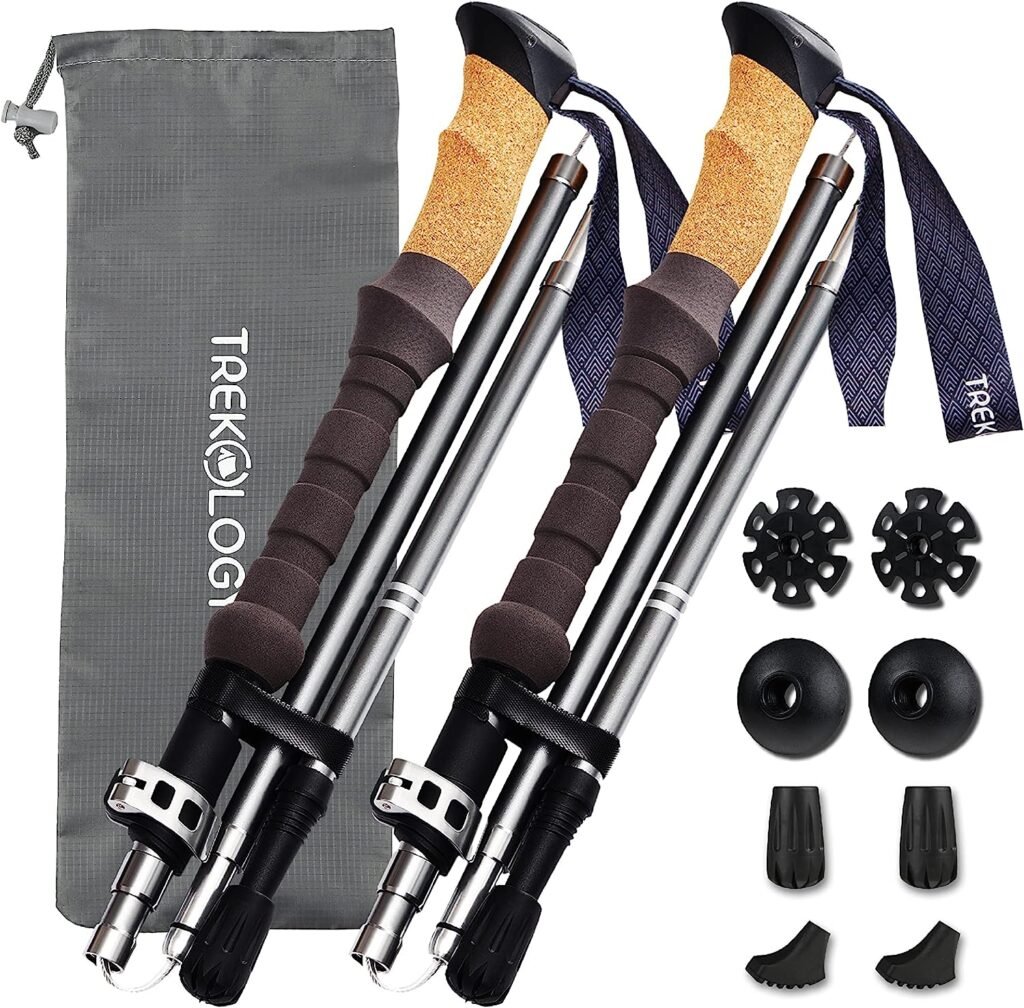
Personal Defense
While bear spray is your primary defense, carrying a whistle or air horn can also be useful for startling bears and alerting others to your location. These tools can provide an added layer of safety.
Knowledge and Awareness
Perhaps the most crucial “gear” you can bring is knowledge. Understand bear behavior, know how to react in an encounter, and be aware of your surroundings. Research the area you’ll be hiking in and be prepared for the specific challenges it may present.
Conclusion
Hiking in bear territory requires preparation and the right gear to ensure a safe and enjoyable experience. By carrying bear spray, using bear-resistant containers, making noise, and being equipped with essential tools and knowledge, you can minimize the risk of a dangerous encounter. Always respect bears and their habitats, and remember that being prepared is key to a successful hike in bear country.

